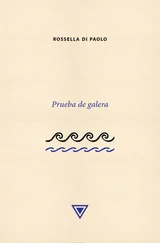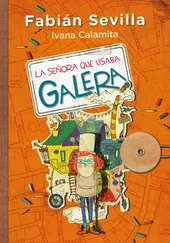I don’t do drugs. I don’t cause problems. I’m going to live by myself with my dog, and I’m the quiet sort.
I know. But I’m going to fix up the apartment.
He thanks her for her time, says good-bye, and leaves.
He has lunch at the cheapest restaurant he can find, goes back to the hotel, and lies on the bed. He casually reads the entire last issue of Runner’s World, which features yet another article on the interminable debate about the benefits of stretching before and after running, and then lies on the mattress with his eyes open, immersed in extensive calculations and daydreaming.
Late that afternoon he pulls on sneakers, shorts, and a polyamide T-shirt and goes for a jog on the beach. He leaves Beta in the hotel room. He runs along the beach from end to end four times, with long strides. The bathers have gone, and few people are outside due to the strong wind. A fisherman pedals past on a bicycle with supermarket bags hanging from the handlebars. A tall woman strolls by with a young boy, drinking maté and swinging a Thermos. An elderly couple walks along hand in hand, the varicose veins of their ankles in the water. He doesn’t know anyone because he has just arrived, but they all look his way and make some kind of acknowledgment. Near the fishing village he sees a group of children and teenagers playing soccer between two sets of goalposts marked with flip-flops. There are no lines to mark the field and no clear criteria for differentiating between the teams. They are all playing barefoot, and the girls dribble the ball and attack with notable skill and physical force. Some are wearing only bikinis, sweating and obstinate, their tangled hair flapping in the wind as they fearlessly clash with their male opponents and fight for the ball with an energy bordering on violence.
He finishes his run in front of the fishing sheds, and from there he can see the front of Cecina’s apartment, with its cream facade and two windows with brown shutters. He can see boats and fishermen in the dark insides of the fishing sheds. The fishermen follow him with their eyes and respond to his waves with economical gestures. Instead of returning to the hotel, he climbs the partially collapsed steps at the end of the beach, takes the footpath around the rocks, and passes in front of the apartment. He stands there a while looking at the closed windows, then sits on one of the last steps of the cement stairs leading down to the rocks. Sea gulls take off and allow themselves to be lifted up by gusts of wind. He rests. A motorboat enters the bay and anchors. A dinghy comes to fetch its two crew members. He gets up and goes to knock on Cecina’s door.
She laughs to see him again so soon, disheveled from his run and with his face covered in a fine crust of salt.
What if I pay all of it up front?
All what?
The rent. The whole year. The price I told you earlier, except all at once. Today. I can give you a check with today’s date on it.
She laughs, presses her hand to her mouth, glances inside the house, and shakes her head.
Ai, ai, ai .
If I leave or break things, it’s already paid for. You won’t be running any risks.
You’re crazy.
He laughs along with her.
I’m not crazy, Cecina. I really want to live there, and I think this way everyone will be happy.
He returns that night with the check. She calls her son, not the short one who showed him the apartment but another one, to examine it, then hands him the keys.
• • •
T he next morning he parks his Fiesta out in the open in the parking lot at the top of the building, by the gate, and carries his belongings down the steps in a long operation that goes on almost until midday. The steps are very narrow, and the low railing is an invitation to fall. He transports one thing at a time. He leaves the inside of the house as it is, not seeing any need to rearrange furniture or do any additional decorating. He goes to the grocery store in the fishing village and buys bathroom and kitchen products, coffee, bread, fruit, yoghurt, honey, granola, chocolate, two packets of pasta, and some ready-made sauce. It isn’t the first time he has slept to the sounds of the sea, but this time they aren’t a distant murmur, a background noise. The ocean breathes in his ear. He hears each wave crashing against the rocks, the fizzing of the foam and splashes. Gulls, or at least what he imagines are gulls, let out guttural cries like cats in heat in the middle of the night and sound like they are locked in bloody battle. He is awakened before sunrise by the growl of the fishing boats’ diesel motors. The yellow light coming through the slats in the shutters is from a lamppost almost directly in front of the apartment. The busy fishermen shout incomprehensible things at one another at an absurd volume until their voices disappear into the rumble of the ocean along with the motors.
He falls asleep again and wakes a little later to the sound of voices engaged in animated debate. After urinating and splashing cold water on his face, he opens the shutters, dampened by the sea breeze, and sees a boat anchored right in front of the apartment. Several fishermen are perched on the rocks and footpath. He watches the scene from the window for a few minutes. The night wind has died down, and the sea is smooth and opaque. The water looks hot. A black power cable trails from the back of the boat, suspended over the water, and is wrapped around the trunk of a tree right in front of his building. One of the men is in the boat, another is sitting on the stairs, and the rest are standing around the white fishing net heaped up on the rock. Slowly the fishermen make eye contact with him and nod. He goes inside and makes some coffee. He is sitting at the table eating a sandwich when there is a knock at the door.
Hey, champ. The boss wants to know if we can plug this in here.
The man’s bottom teeth are rotten, and he has a long rodent’s face. He raises a cigarette to his lips with thick, cracked fingers that get thinner at the tips and end in ragged nails. With his other hand he is holding up a plug with two rusted pins and a clump of black electrical tape holding it together. It is the other end of the power cable trailing from the boat.
It’s for the soldering gun, says the man when he sees him hesitate. We’re fixing the boat’s motor over there.
Okay, you can use that socket there.
Thanks, champ. You’re a good man.
In a moment the soldering gun goes into action somewhere in the innards of the boat, a white whaler with decorative yellow and red stripes called Poeta . It must be about forty feet long. Sparks fly from an opening in the deck while the vessel softly rolls from side to side. He leaves the apartment and goes to watch the activity from the footpath. The men on dry land make fun of one another and joke about money. The man who knocked at his door, who looks like a beaver with a long face, is the one who talks the most, and someone calls him Marcelo. It is hard to decipher much of what they say, but he understands that one of them, a fat man who is watching the scene from a certain distance and may be the owner of the boat, has just received an army pension. The others are asking him for money jokingly.
Gimme a hundred bucks.
Haven’t got anything.
Don’t you feel sorry for me? I can’t even afford a packet of crackers.
That’s your problem.
The man who was welding the motor appears on deck and shouts that the soldering gun has stopped working. The others start to examine the cable, looking for the problem. There is a patch on part of the cable, and one of the fishermen takes to it with his pocketknife. In the meantime the boat has drifted closer to the rocks, and the cable that was previously suspended above the water has lost height and is almost completely submerged. The whole situation looks risky, not to say insane.
Читать дальше












